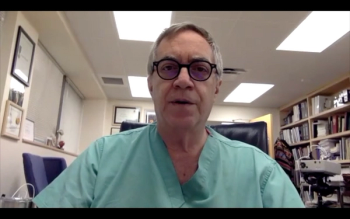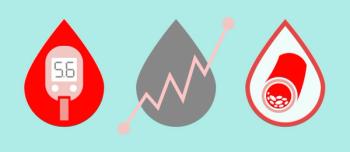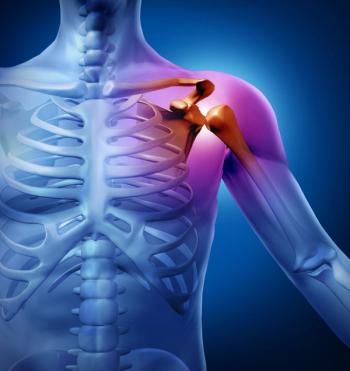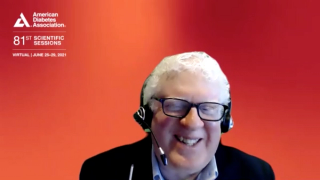
Type 1 Diabetes
Latest News
Latest Videos

More News

Throughout, the guidance from the American Diabetes Association (ADA) and the European Association for the Study of Diabetes (EASD) calls for respecting the patient’s choices, including the fact that not all patients prefer insulin pumps or can afford them.

Results of a 15-year cohort study found waist to height ratio was associated with increased risks of severe diabetic eye disease among individuals with type 1 diabetes.

Ezio Bonifacio, PhD, addresses barriers inhibiting widespread screening for type 1 diabetes (T1D), and offers insights on whether all individuals should be screened, or only those known to be at genetic risk for the disease.

A team of Australian researchers created and validated a model that may boost efficiency of type 1 diabetes (T1D) progression screening.

Camillo Ricordi, MD, FNAI, discusses some of the potential risks faced by patients with type 1 diabetes who undergo islet transplantation.

Leslie Eiland, MD, offers insights on whether use of certain technologies among patients with type 1 diabetes (T1D) will continue after the pandemic ends.

Results of a Swedish retrospective cohort study showed reduced rates of type 1 diabetes-related amputations over the past 2 decades.

Results of an Australian study highlight the changes that occur in the gut microbiome of pregnant patients with type 1 diabetes.

Aleksandar Kostic, PhD, an assistant professor of microbiology at Harvard Medical School, outlines what needs to happen next in his research developing a type 1 diabetes (T1D) vaccine.

Findings indicate that youth with type 1 diabetes may benefit from limiting fat intake.

Ezio Bonifacio, PhD, describes the benefits of screening children for type 1 diabetes and what preventive interventions may be possible.

Ann Goebel-Fabbri, PhD, a clinical psychologist in Boston, Massachusettes, dispels common misconceptions involving eating disorders among patients with type 1 diabetes.

Researchers revealed exposure to air pollution increases the risk of severe hypoglycemic episodes among youth with type 1 diabetes (T1D) in Germany.

JDRF, the world's largest nonprofit funder of type 1 diabetes research, announced the appointment of Shereef Elnahal, MD, to its research committee.

Mary Pat Gallagher, MD, of NYU Langone Health, outlines why young individuals should be vaccinated against COVID-19 and Finnish data on increased rates of type 1 diabetes (T1D) seen during the pandemic.

In a recently published review, authors assessed the relationship between poor bone health and type 1 diabetes (T1D) and outlined potential mechanisms that may account for the association.

Camillo Ricordi, MD, FNAI, outlines the current status of islet transplantation for patients with type 1 diabetes in the United States.

Leslie Eiland, MD, outlines some of the challenges of delivering optimal care to patients with type 1 diabetes (T1D) living in rural America.

New research shows central obesity is associated with an increased risk of poor heart failure outcomes among those with type 1 diabetes.

The designation means that pharmacists can switch patients to the less-expensive version of insulin without seeking approval from the clinician.

Aleksandar Kostic, PhD, an assistant professor of microbiology at Harvard Medical School, explains how a microbially targeted vaccine may prevent type 1 diabetes (T1D).

In a new review, researchers assessed the negative impacts of glycemic variability on cognitive function and brain structure among youth with type 1 diabetes.

Ezio Bonifacio, PhD, explains factors associated with childhood type 1 diabetes incidence and why more research is needed among minority populations.

In Germany, rates of diabetic ketoacidosis (DKA) seen at time of type 1 diabetes (T1D) diagnosis were stable throughout the past 2 decades.

Ann Goebel-Fabbri, PhD, a clinical psychologist in Boston, Massachusettes, discusses how limited research on patients with type 1 diabetes (T1D) and eating disorders hinders progress on developing effective interventions.












